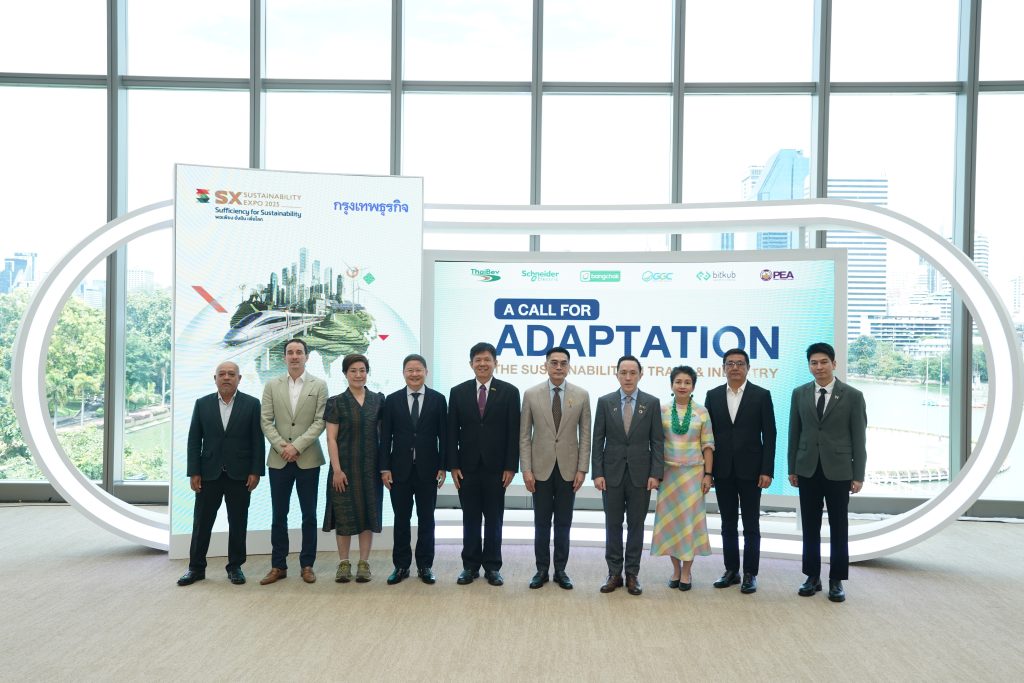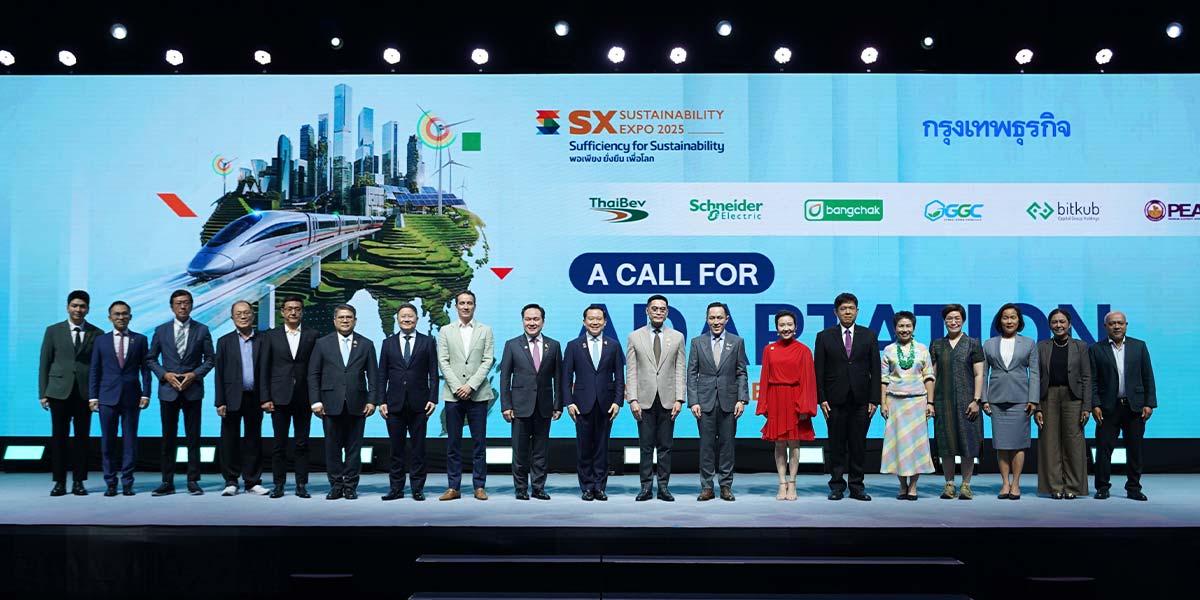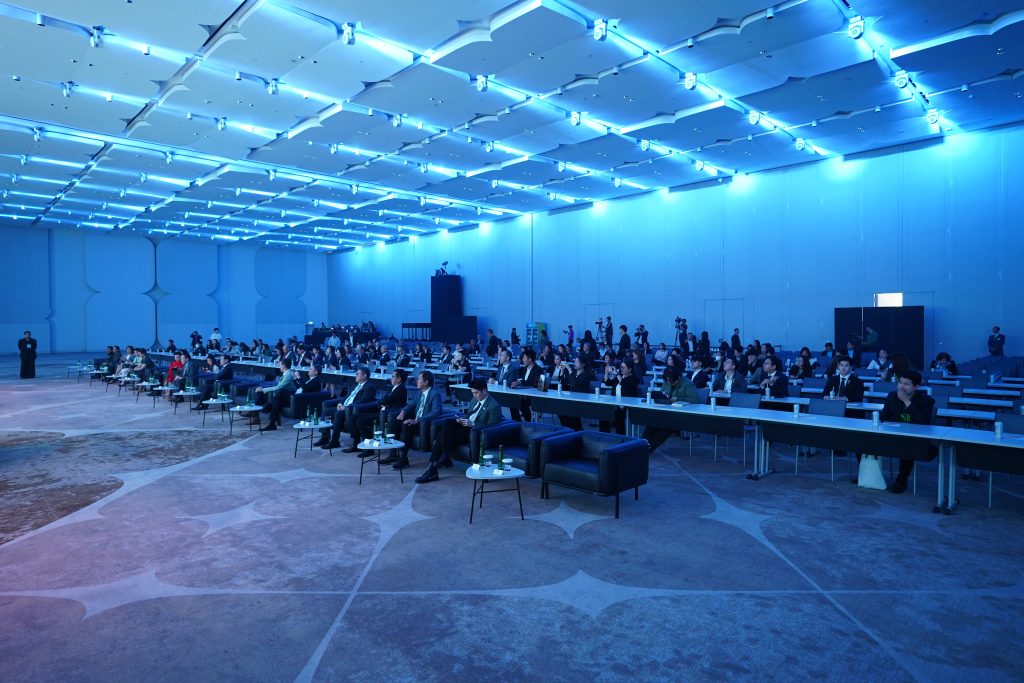Mr. Daniel Ross, Chief Investment Officer and Head of Sustainability Development at BTS Group Holdings Public Company Limited (SET: BTS), participated in the seminar “A Call for Adaptation: The Sustainability in Trade & Industry” in the session Collab Talk: Infrastructure for Green City, held at the Plenary Hall, first floor, Queen Sirikit National Convention Center (QNSCC).
 Mr. Ross stated that BTS Group is fully committed to supporting Thailand’s goal of achieving Net Zero by 2050. However, in order to achieve this target within the transport sector, Thailand must accelerate the expansion of its rail network, especially electric train systems. Currently, more than 80% of Thai people travel by car, accounting for as much as 95% of carbon emissions in the transport sector, while rail-based travel makes up only 15% of total trips but produces merely 3% of emissions.
Mr. Ross stated that BTS Group is fully committed to supporting Thailand’s goal of achieving Net Zero by 2050. However, in order to achieve this target within the transport sector, Thailand must accelerate the expansion of its rail network, especially electric train systems. Currently, more than 80% of Thai people travel by car, accounting for as much as 95% of carbon emissions in the transport sector, while rail-based travel makes up only 15% of total trips but produces merely 3% of emissions.

To reach the Net Zero goal, electric trains should be promoted as the country’s main mode of transportation, as they offer a low-carbon, safe, efficient, and cost-effective travel option. This approach aligns with three key pillars of sustainability: 1. Environmental Responsibility: Reducing greenhouse gas emissions through sustainable energy use. 2. Social Accessibility: Ensuring transport systems are easily accessible and affordable. 3. Economic Viability: Promoting economically viable investment. Most importantly, the success of this transition will require strong government support, including policies that lower the cost of living to encourage more people to use electric trains. If implemented effectively, Thailand could even achieve Net Zero earlier than 2050.
For over 30 years, BTS Group has continuously invested in developing low-carbon public transportation systems. Over the past five years, the Company has raised more than THB 63 billion through Sustainability-Linked Bonds and Green Bonds, while also investing THB 400–500 million annually to enhance the efficiency of its electric train fleets. Looking ahead, the Company plans to install solar rooftops across 45 stations along the BTS SkyTrain across the Yellow Line, the Pink Line as well as at maintenance depots. Once completed, these solar installations will be able to supply up to 20% of the network’s total electricity demand.






